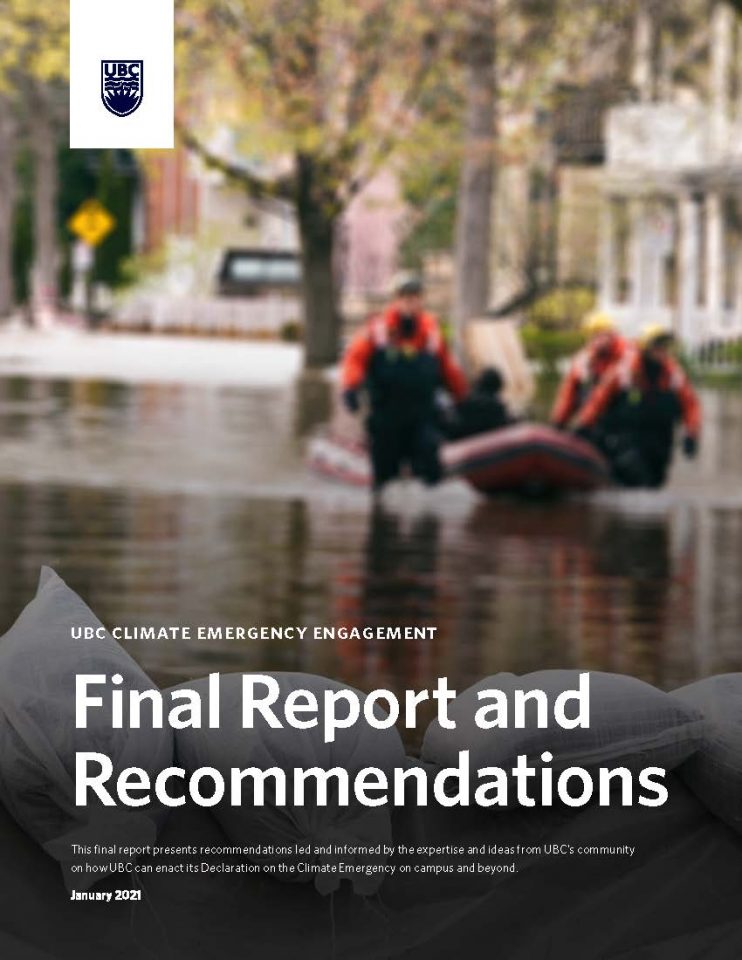- September 2019
UBC students mobilize around the Global Climate Strike
- December 2019
UBC Declares a Climate Emergency
- February – June 2020
Nearly 4,000 UBC community members across campuses and beyond are engaged
- July 2020 – January 2021
Report and recommendations drafted by Working Groups and Task Force members
- February 2021
Board of Governors unanimously endorse in principle the CETF Report and Recommendations
- March 2021
UBC Sustainability Hub begins role to convene and coordinate implementation

Discover the actions UBC is taking
In December 2019, the UBC Board of Governors unanimously endorsed a Declaration on the Climate Emergency, responding to the advocacy and leadership of our students and community members and joining other universities, organizations, municipalities, and Indigenous Nations around the world.
The Declaration was prompted by student action which included an open letter garnering over 1,600 signatures from students, staff, faculty and campus organizations, and mobilizing over 5,000 UBC students, faculty and staff in the September 27th, 2019 Global Climate Strike.
The Declaration committed UBC to assembling its climate emergency response in partnership with campus and community members. In some of its bolder commitments, the Declaration recognizes the need for transformational change in shifting away from fossil fuels and upholding Indigenous human rights. It acknowledges the future threat and current impacts that UBC community members are already experiencing. As such, UBC has a unique role in addressing this crisis: as a place for climate leadership in preparing students for just and sustainable futures.
The Declaration established the Climate Emergency Task Force (CETF) with a mandate to conduct extensive community consultations and prepare a set of recommendations for the Board of Governors. Consultations were intended to consider not only the full scope of UBC’s impact in the climate crisis but to embed the principles of climate justice into the fabric of the institution.
In February 2020, UBC launched an initial climate emergency community engagement process, overseen by a task force of students, staff and faculty, and supported by a project team of UBC staff. Within a matter of months, and in the midst of a global pandemic, the Climate Emergency Task Force received considerable input from nearly 4,000 students, staff, faculty, alumni and community members across UBC Vancouver and Okanagan campuses and beyond. The engagement process culminated into the Climate Emergency Task Force Report and Recommendations, which was unanimously endorsed in principle by the UBC Board of Governors in February 2021.
Since the report’s endorsement, the UBC Climate Action Plan 2030 has been approved and is in the implementation phase. A number of initiatives across the university have been created or scaled up, as well as new partnerships. UBC Sustainability Hub serves the role to convene and coordinate the implementation of the CETF Report and Recommendations.
Final Report and Recommendations

The Climate Emergency Task Force (CETF) report details a number of new commitments to accelerate climate actions including full fossil fuel divestment, meeting ambitious net-zero emissions targets, and supporting climate leadership and initiatives led by Indigenous, Black, and People of Colour.
